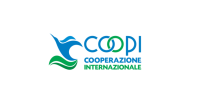This company has no active jobs
About Us
COOPI was founded by Father Barbieri on 15 April 1965. This is when it all started – a journey spanning more than fifty years during which COOPI and Italian international cooperation have expanded and evolved in very different aspects. Yet COOPI story began before 1965. In fact, it dates back to 1961, when Vincenzo Barbieri, a young Jesuit priest, was sent to Lyon, in France, to study at the Faculty of Theology, in order to go on a missionary mission to Chad. Barbieri found the cultural environment in France to be much more lively and open-minded than the one he experienced in Italy in the years before the Second Vatican Council. In Lyon, he came into contact with international secular movements engaged in voluntary work in developing countries for many years. In 1962, Barbieri turned down the opportunity to leave as a missionary himself and returned to Milan, to train volunteers who were eager to leave for developing countries. Father Barbieri has been the one to include secularity in missionary activities.
In recent years, COOPI has undergone significant organizational change, which sees the decentralization approved in 2019 as a key step.
Now COOPI has a Regional Coordination for each area of intervention (West Africa, Central Africa, East and Southern Africa, Middle East, Latin America and the Caribbean), whose purpose is to bring decision-making closer to the area of intervention, as well as to give COOPI local accreditation and to better involve the beneficiaries in the choices.
The headquarters in Milan is reconfirmed in its role of general direction, support and control of the overall work. Today it is divided into two units: the “General Activities” and the “International Activities” ones.
The “General Activities” staff includes the functions of General Secretariat, Administration and Finance, Institutional Representation, Institutional Communication, Human Resources, Monitoring and Evaluation, Security Advisor and Fundraising.
The “International Activities” Unit includes two areas: 1) “Knowledge”, whose objectives are the nurturing and enhancement of COOPI’s know-how; 2) “Management”, whose tasks relate to the qualitative monitoring of projects, the maintenance of control systems and the administrative compliance of projects to be submitted.
The HQs staffs, in this logic, become on the one hand centers of competence and monitoring in support of the operational areas and on the other hand centers of high control, to guarantee the international donors and their processes.
The lines of Development 2022-2024, outlined by COOPI’s Board of Directors and called “The Near Future”, represent the natural continuation of the previous five-year strategy document, “Together we can make the world a better place”.
The purpose of the new strategy document is not to give an exhaustive representation of COOPI’s work, but to indicate lines of development and those strategic objectives that represent the elements on which the Foundation must focus more in the coming years, in order to continue a development path that goes beyond what is already consolidated, in terms of operations, intervention capacity and skills.
In practice, it is what COOPI must do “beyond” what normally happens in order to give effective responses to the fight against poverty, while growing in order to support an ever-increasing number of people.
This is why it is a streamlined document, which will integrate with the other documents that regulate or report on the work of the Foundation (from annual reports to policies and guidelines, to the various tools that allow us to know who we are, what we do and how we do it).
The concept that represents the glue of the work done here is the word “near”.
“Near” understood to be our neighbor when we talk about those living in conditions of fragility.
“Near” understood to be those who are closest to us and could find themselves in conditions of fragility, even if “far” from the typical first and third world logics, which for too long have limited the boundaries of cooperation.


